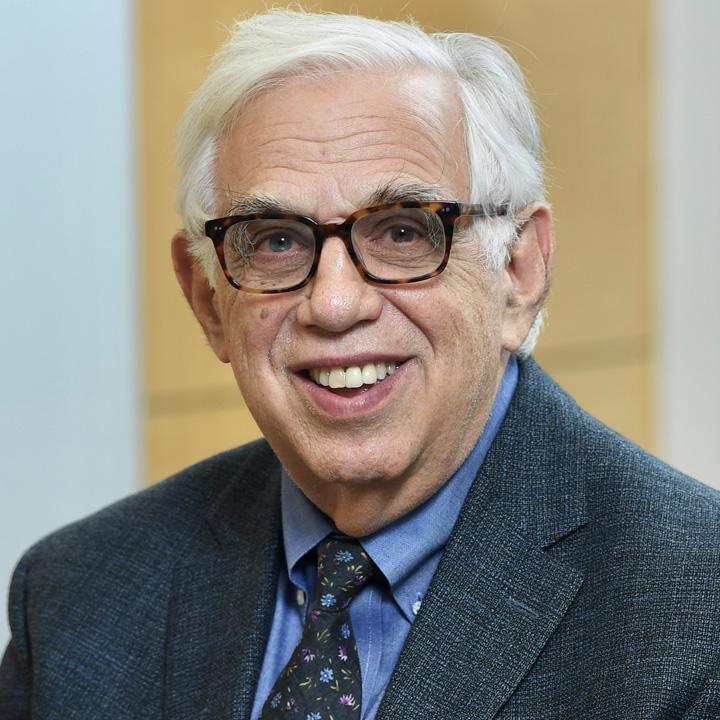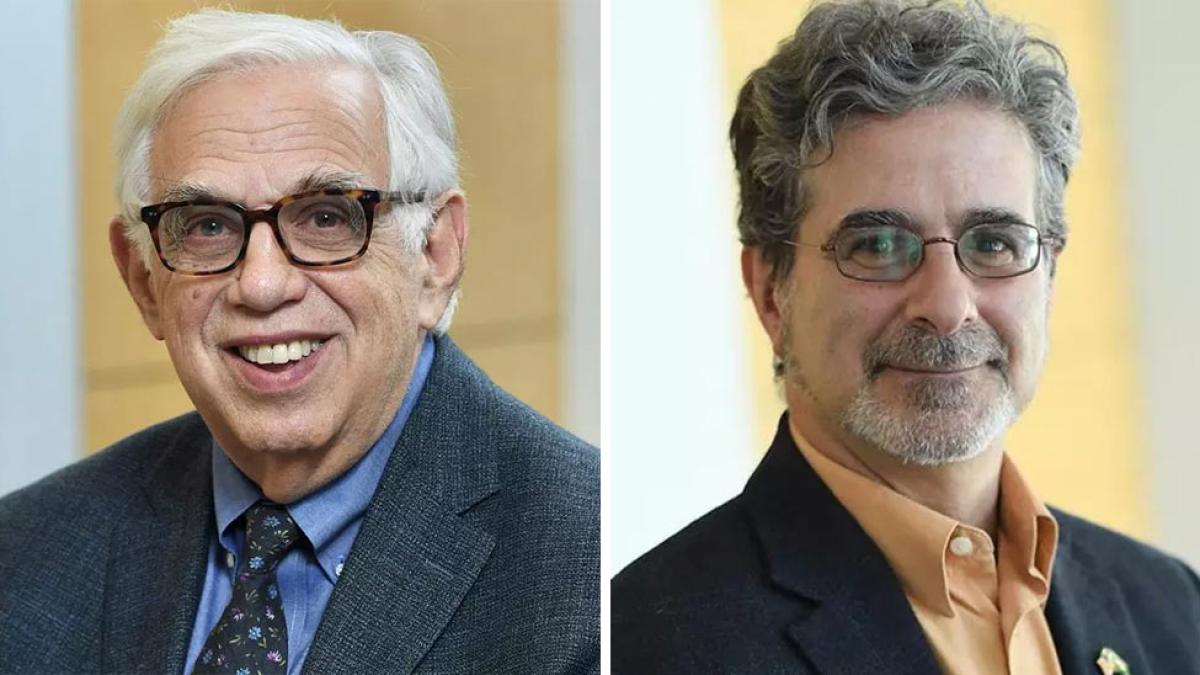In their article, Powerless Beings: Solitary Confinement of Humans and Non Humans in America, published in Nebraska Law Review, Haub Law Professors Michael Mushlin and David Cassuto use a comparative format to examine the moral, penological and scientific shortcomings of solitary confinement across species. The article sheds light on the importance of empowering all creatures subjected to solitary confinement. “If we adequately protect all vulnerable beings, the unnecessary suffering inflicted by solitary confinement will finally end,” they write.

Michael B. Mushlin
Biography
Professor Michael B. Mushlin is the author of a four-volume treatise entitled Rights of Prisoners (5th ed. Thomson Reuters). Professor Mushlin was staff attorney and project director of the Prisoners’ Rights Project of the Legal Aid Society, where he litigated complex class action cases on behalf of incarcerated persons in New York prisons and New York City jails. He was the Associate Director of the Children’s Rights Project of the American Civil Liberties Union, and was staff Attorney at Harlem Assertion of Rights, Inc. He served on the Board of the Correctional Association of New York and was its Chair and Vice Chair. He was also Chair of the Osborne Association, a program that provides services and programs for incarcerated people and their families, and Chair of the Corrections Committee of the New York City Bar Association, where he led an investigation into conditions on New York’s death row. He served as a member of the Task Force on The Legal Status of Prisoners of the American Bar Association, and as co-Chair (with Michele Deitch) of the ABA’s subcommittee on prison oversight. He currently serves on the Advisory Committee on Criminal Law and Procedure to the New York State Judiciary, where he chairs the subcommittee on judicial visits to prisons. He teaches Civil Procedure, Evidence, and Prisoners' Rights. He is the author of book chapters and articles on a variety of subjects involving evidence, federal jurisdiction, civil procedure, children's rights, and prisoners' rights that have appeared in journals such as the Yale Law and Policy Review, UCLA Law Review, Harvard Civil Rights Civil Liberties Law Review, The Journal of Legal Education, Brooklyn Law Review, and the Fordham Urban Law Journal. He also is the author New York Evidence With Objections (5th ed National Institute of Trial Advocacy 2018) (with Lissa Griffin & Jo Ann Harris). He is a member of the Editorial Board of the Correctional Law Reporter. Professor Mushlin also served on the boards of Children's Rights Inc. and Haub Law's John Jay Legal Services Inc.
Professor Mushlin has spoken widely on a variety of topics. He was honored by a Resolution of the Texas House of Representatives for his work together with Professor Michele Deitch in organizing a national conference that focused on the oversight of U.S. prisons and jails. The resolution commended him and Professor Deitch for stimulating dialogue and debate that would “lead to significant reforms within the U.S. criminal justice system.” Professor Mushlin was selected to be a member of the Executive Committee of the New York City Bar Association, and was elected Secretary of the Executive Committee.
Professor Mushlin was appointed Charles A. Frueauff Research Professor of Law during the 1991-1992 academic year, and James D. Hopkins Chair in Law during the 2005-2007 academic years at Haub Law. He served as Associate Dean of Academic Affairs for seven years.
Professor Mushlin’s life and distinguished career were featured in a series of oral history videos published by the Civil Rights Clearing House in 2023.
Education
- BA, Vanderbilt University
- JD, Northwestern University School of Law
Publications
View all of Professor Mushlin’s publications on SSRN, Digital Commons or download his CV (PDF).
BOOKS
- Rights of Prisoners (5th ed Thomson Reuters) (four-volume comprehensive treatise on the law regarding prisoners' rights) (Annual Supplements latest 2022/2023)
- New York Evidence With Objections (5th ed National Institute of Trial Advocacy 2018) (with Lissa Griffin & Jo Ann Harris)
BOOK CHAPTERS
- “Correctional Health Care and Special Populations: Legal Considerations and Context,” in Managing Special Populations in Prisons and Jails, (Stan Stojkovic, ed., Civic Research Institute (2010)
- “Legal Rights of Prisoners” in Encyclopedia of Crime and Justice (2d Ed Macmillan 2001).
- “Practice Commentaries,” Revision Author, Volume 1, Article 1, Weinstein, Korn and Miller, New York Civil Practice (2005)
ARTICLES
- I Am Opposed to This Procedure: How Kafka's In the Penal Colony Illuminates the Current Debate About Solitary Confinement and Oversight of American Prisons, 93 Or. L. Rev. 571 (2015)
- The Professor and the Judge: Introducing First- Year Students to the Law in Context, 63 J. Legal Educ. 460 (2014) (with Hon. Lisa M. Smith)
- Unlocking the Courthouse Door: Removing the Barrier of the PLRA’s Physical Injury Requirement to Permit Meaningful Judicial Oversight of Abuses in Supermax Prisons and Isolation Units, 24 Federal Sentencing Reporter 268 (2012)
- Williams v. Hobbs: A Welcome Deviation, 23 Correctional Law Reporter 92 (April/May 2012).
- Let the Sunshine In: The ABA and Prison Oversight, 2011 American Bar Association: The State Of Criminal Justice 242 (The American Bar Association, Criminal Justice Section 2011) (with Michele Deitch)
Honors & Awards
- Faculty Award for Excellence in Teaching (2019)
- Outstanding Professor of the Year Award (1994)
- Resolution, The 79th Texas Legislature (2006) (in honor of Professor Michele Deitch and Professor Michael Mushlin for their work in organizing a conference that focused on the oversight of U.S. prisons and jails. The resolution commended them for stimulating dialogue and debate that would “lead to significant reforms within the U.S. criminal justice system.”).
Areas of Interest
Prisoners’ Rights Litigation, Administrative Action, Legislation, The American System of Imprisonment and Detention, Civil Rights Litigation, Civil Procedure, Evidence Law, Civil Litigation and Dispute Resolution
Related News and Stories
Professor Michael Mushlin speaks with New York Focus about how jails are monitored by the New York State Commission of Correction.
